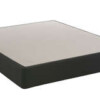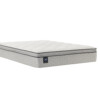How To Avoid Jet Lag

About 93 percent of travelers will experience jet lag at some point. What do the other 7 percent know that you may not? How to avoid this unpleasant sensation, which causes symptoms including disorientation, fatigue, depression, headaches and nausea. When jet lag strikes at the start of a trip, you lose valuable time feeling enjoying your destination city; when it strikes at the end of the trip, you may find that focusing on work and family is difficult. You can’t afford to spend several days dealing with those symptoms, but you can prevent them from happening the next time you cross time zones.
Change Your Schedule
Starting a week before travel, gradually adjust your bedtime to match the time zone of your destination. So if you’d normally go to sleep at 11:00 p.m. in Kansas and you’re traveling to Hawaii, five time zones earlier, move your bedtime up by 30 to 60 minutes each night until it’s as early as you can manage. If you’re flying east, push your bedtime back gradually. By the time you leave for your trip, your body will be nearly accustomed to the schedule you’ll follow at your destination. During the last few days of your trip, try to adjust your sleep schedule back to your home time zone to make the transition home smooth.
Manage Sleep
Shifting your sleep schedule while preparing for travel and during travel is sometimes easier said than done. Take extra care to create the best sleep environment you can. Eat dinner two to three hours before you need to fall asleep, avoid screens for the last hour before bed, and adjust the temperature in your bedroom to between 60 and 67 degrees Fahrenheit. It’s especially important that you create the ideal sleep environment if you’re headed to a place with high altitude, where sleeping can be especially difficult for those not used to the environment.
Mimic Conditions
You’ll sleep best while traveling if you’re in a familiar environment. If you’re traveling to a bustling place where you’ll hear city noise at night, start sleeping with a white noise machine before you leave, and take the machine with you to block out the noise during your trip. Alternately, look for a phone app that offers sounds similar to the ones you hear at home, whether that’s crickets chirping or traffic whizzing by.
Travel Comfortably
Any trip that can cause jet lag is bound to be a long one. At the start of the trip, change the time on your watch and devices to match the current time at your destination. If you’re on an overnight flight, wear loose-fitting clothing, avoid caffeine and alcohol, practice meditation, wear a sleep mask, and don noise-canceling headphones so you can get as much rest as possible.
It’s easy to become dehydrated during travel, and that makes jet lag symptoms worse. Sip water throughout the course of your travel. If you tend to forget to hydrate, set a phone alarm to remind you to drink every 15 minutes.
Become a Local
No matter how rested you were when you left home, a nap may seem irresistible by the time you reach your hotel. Unless it’s night at your destination, fight the urge to sleep when you arrive. Strive to get your body on a schedule that suits the local time. If it’s breakfast time when you land in Paris, eat breakfast even if your body says it’s time for dinner. If you’re feeling sleepy during the day, seek out sunlight to signal to your body that it’s time to be awake.
Before your next big adventure, get the best sleep of your life by visiting The Mattress Hub. Our Kansas sleep experts (and the Cheap Sheep) will help you rest up at the friendliest Kansas mattress store. Don’t forget to send us a postcard!




